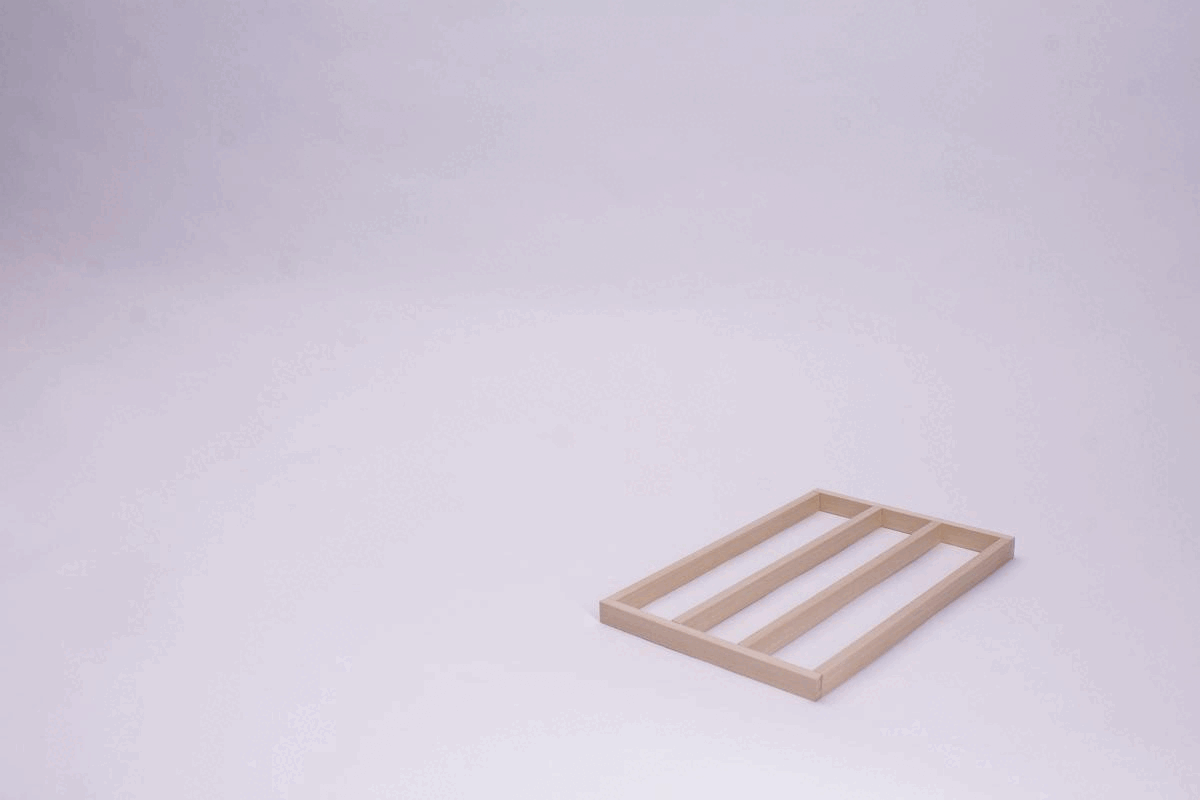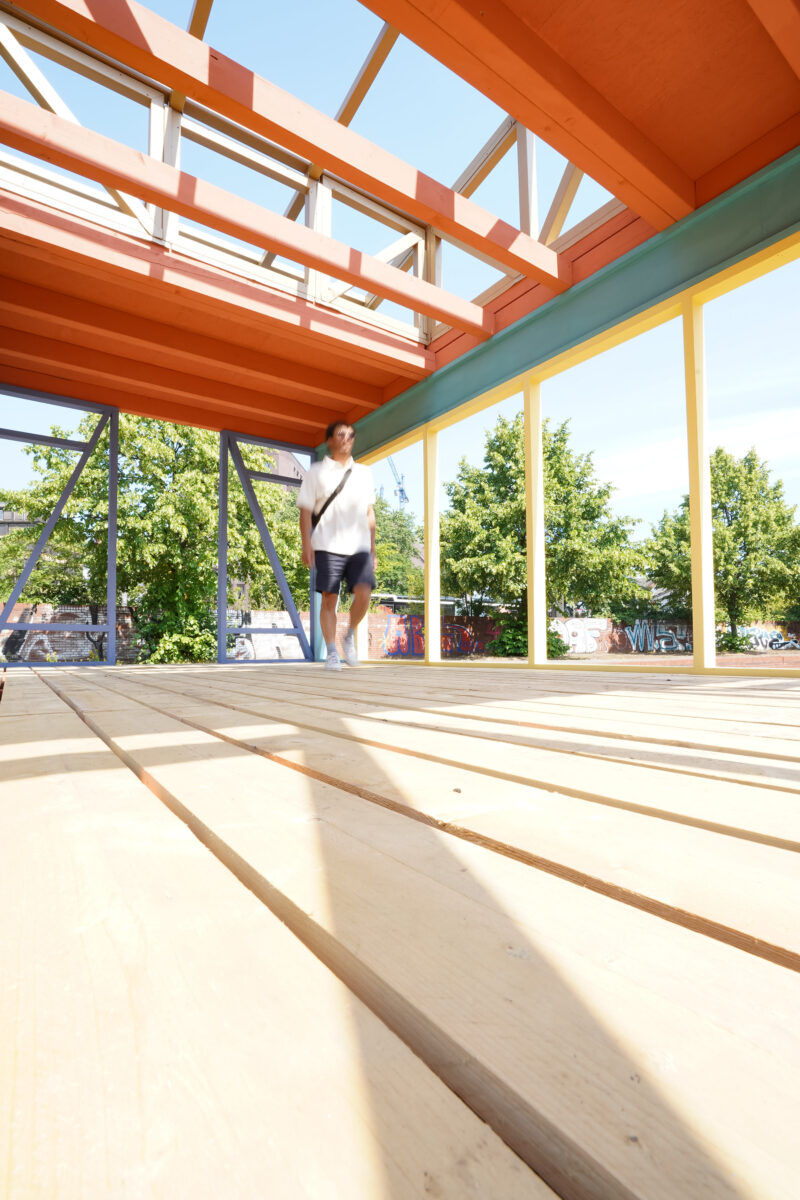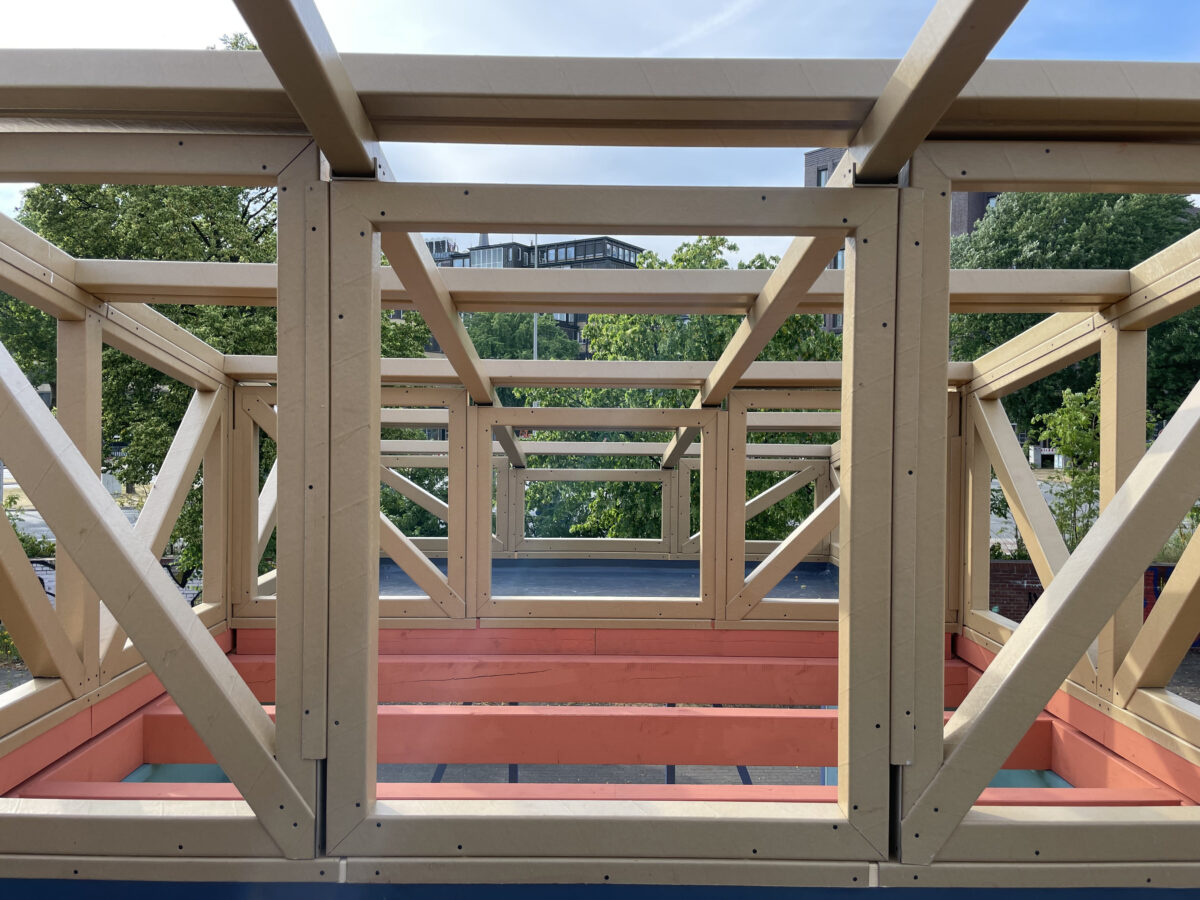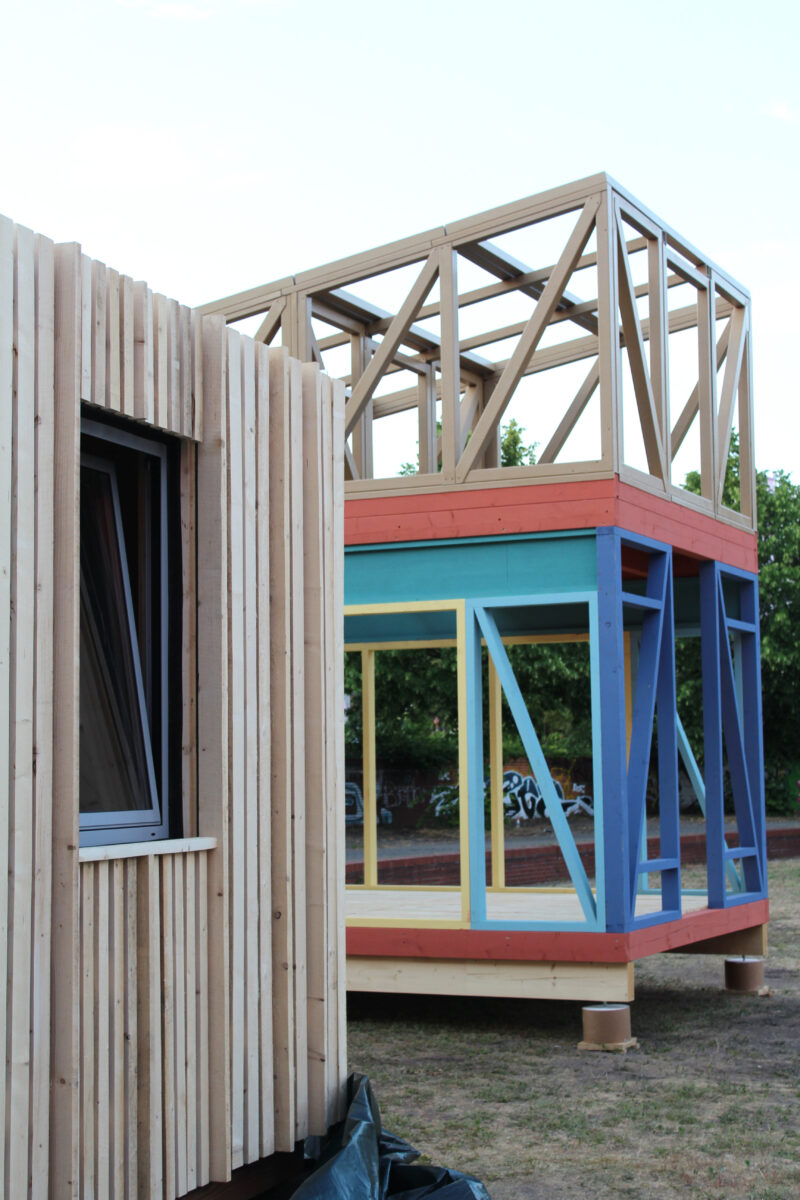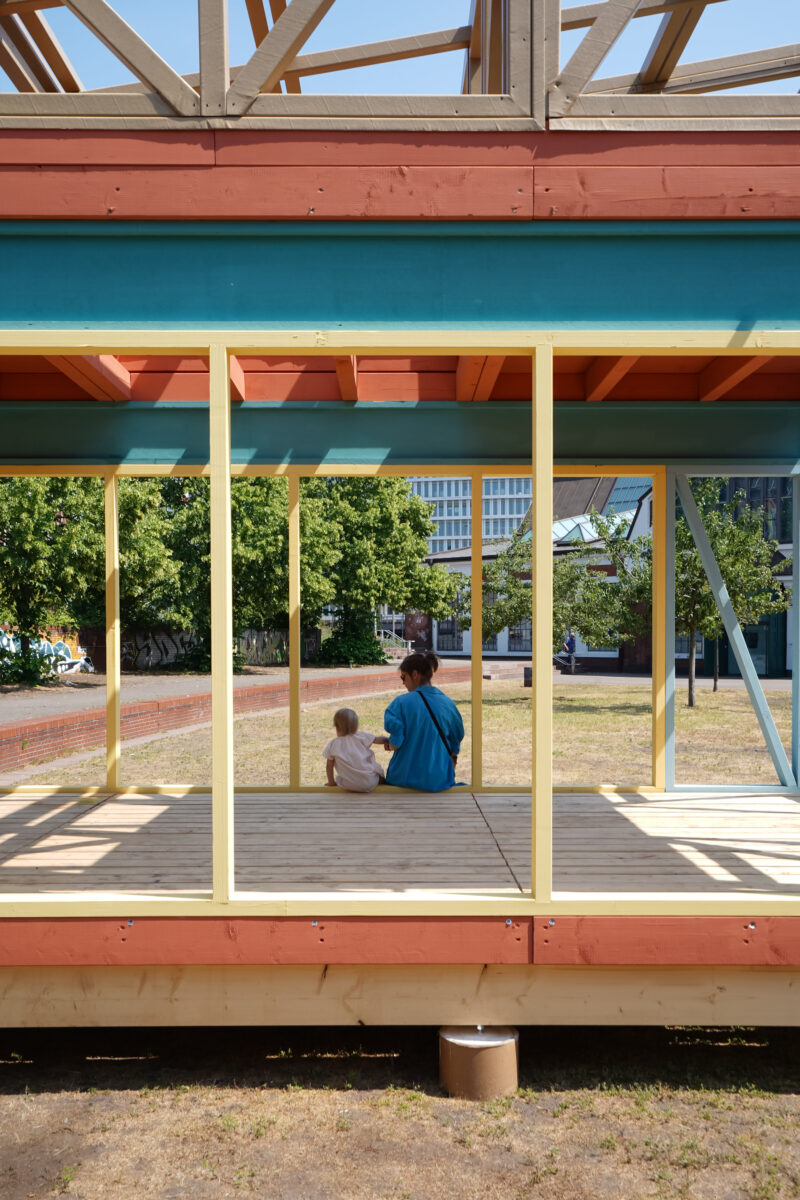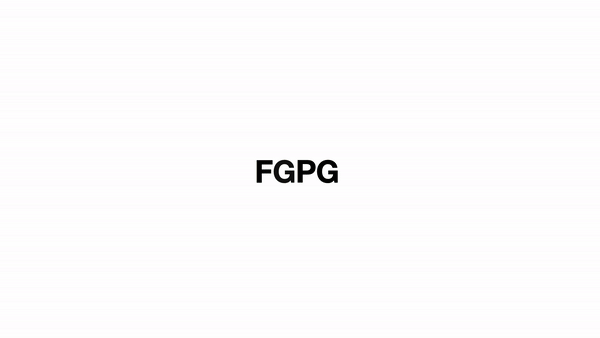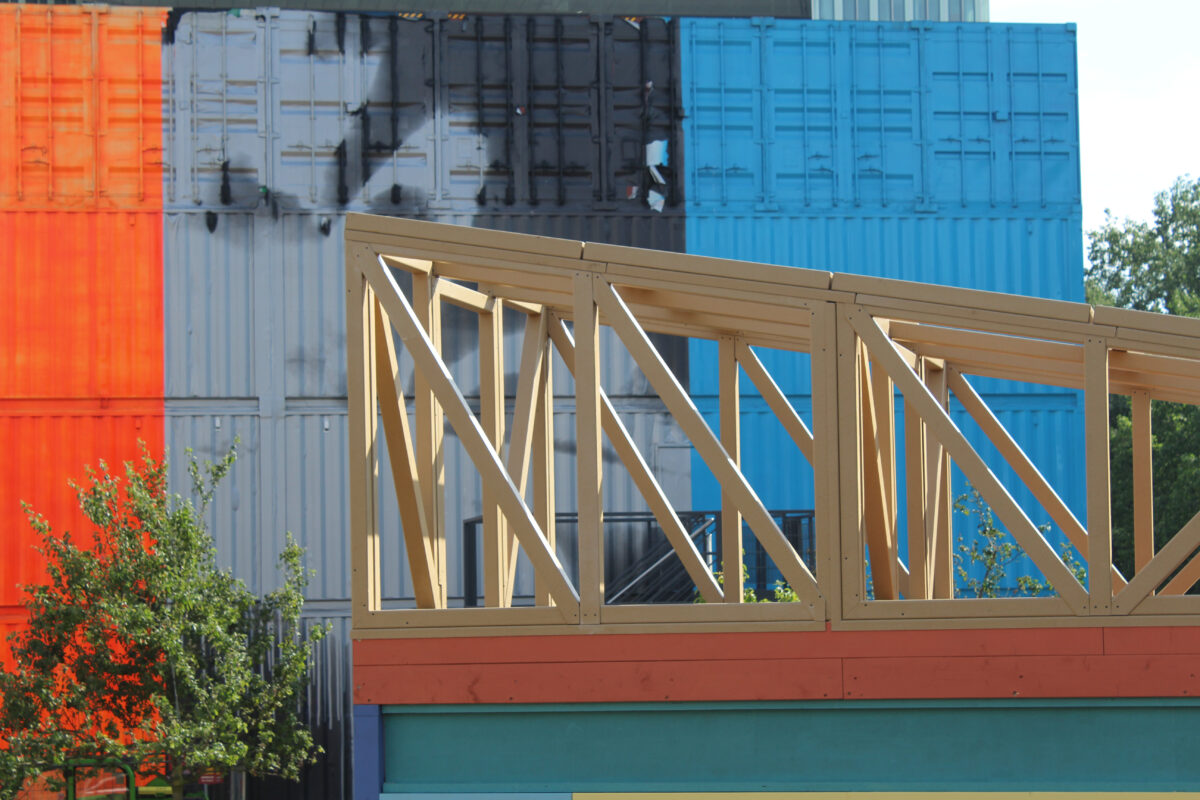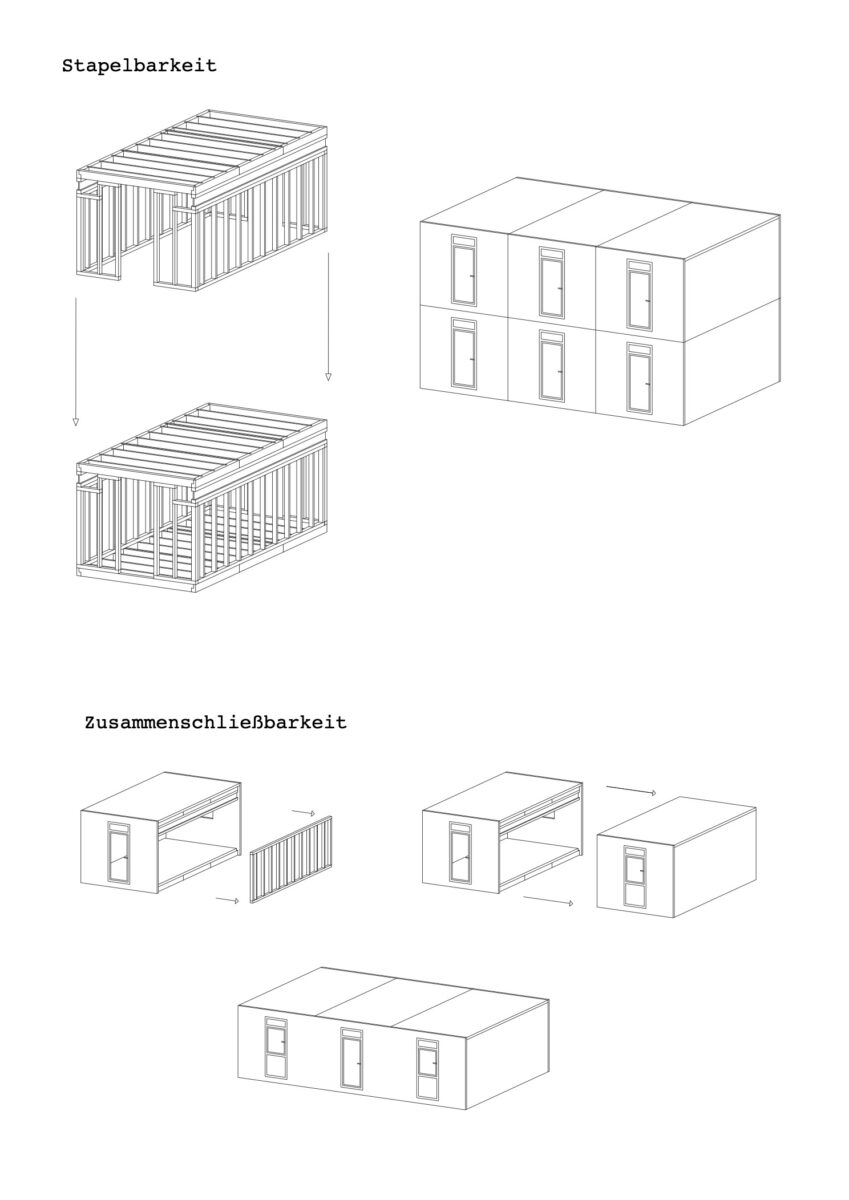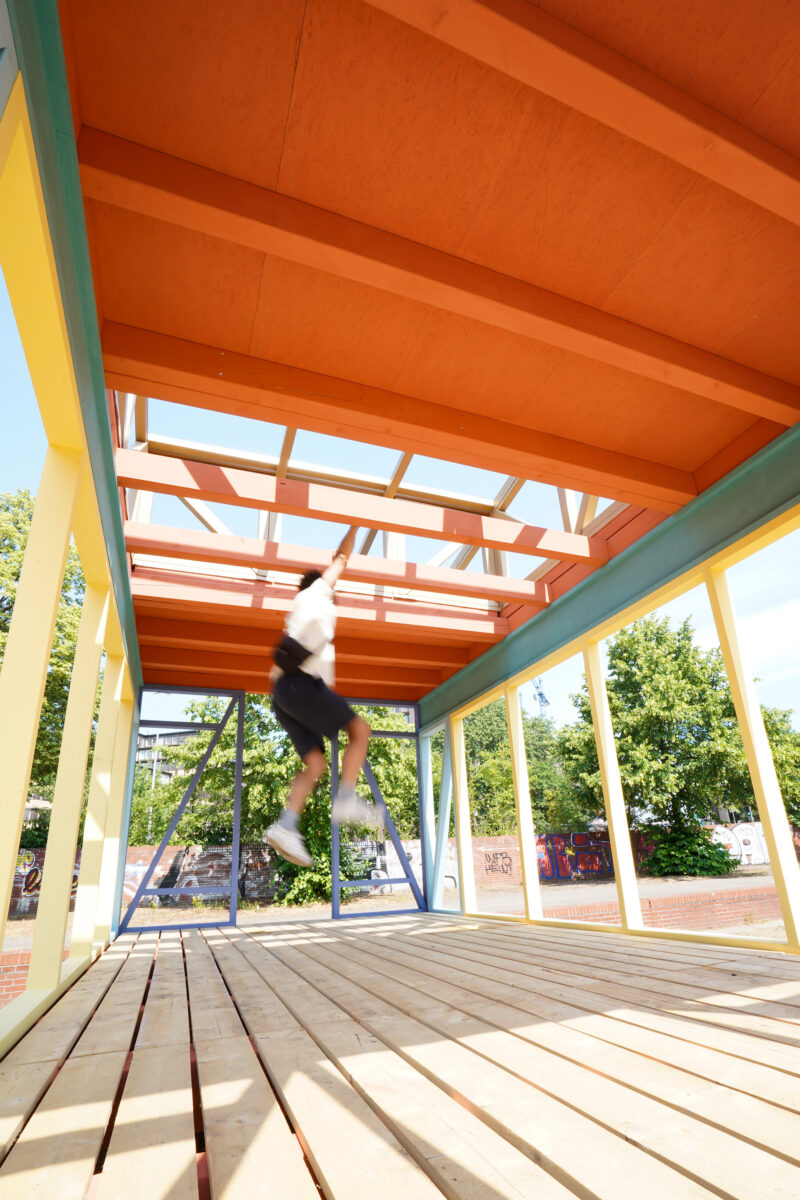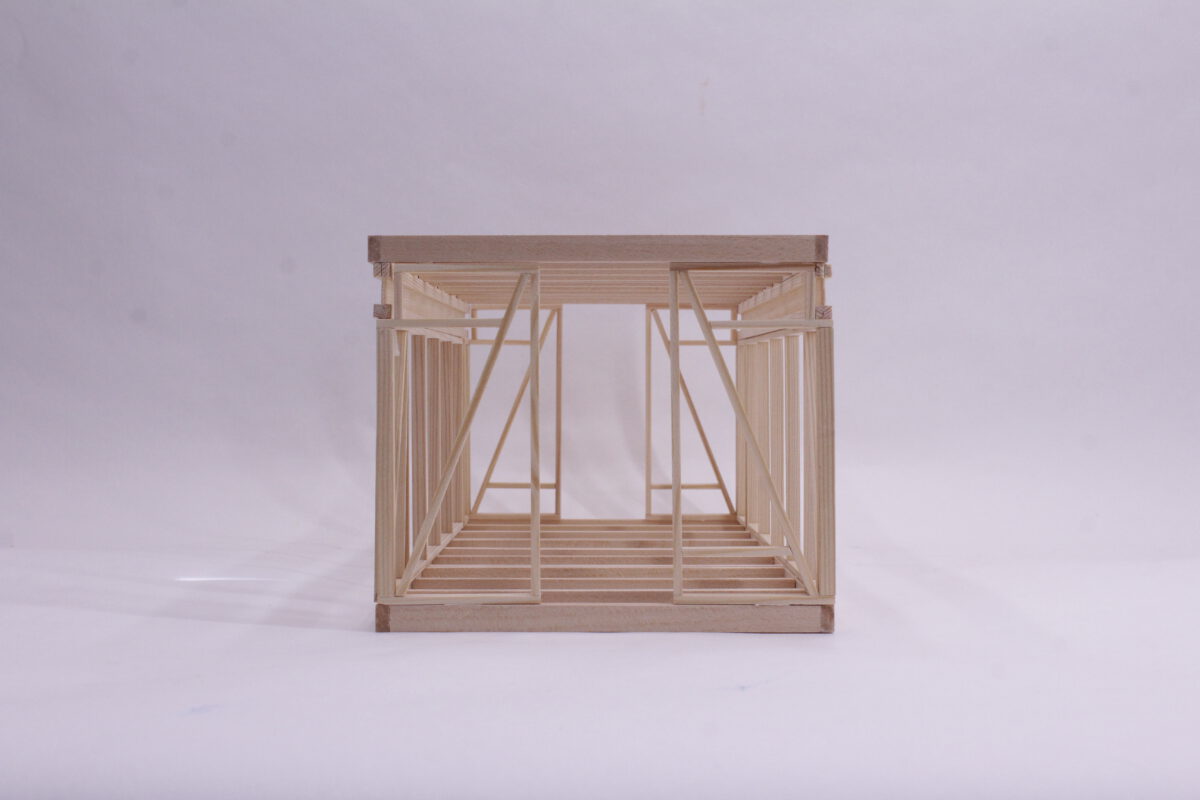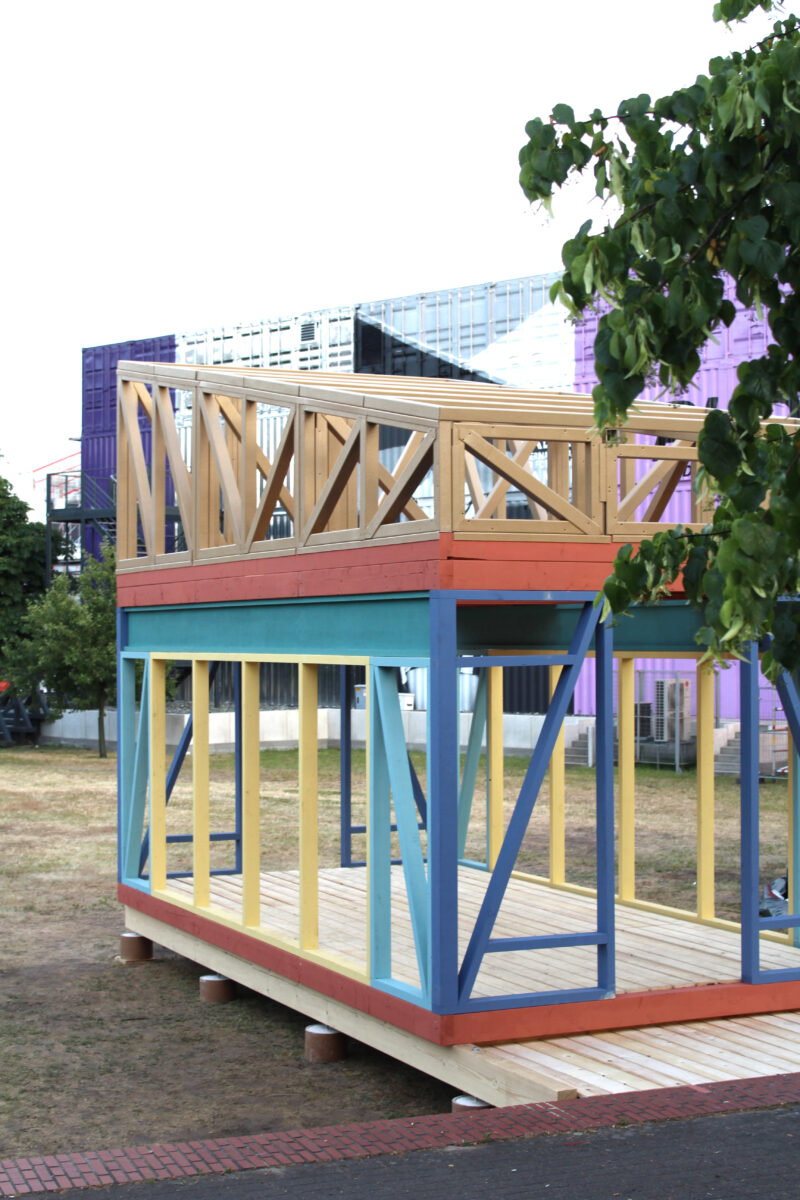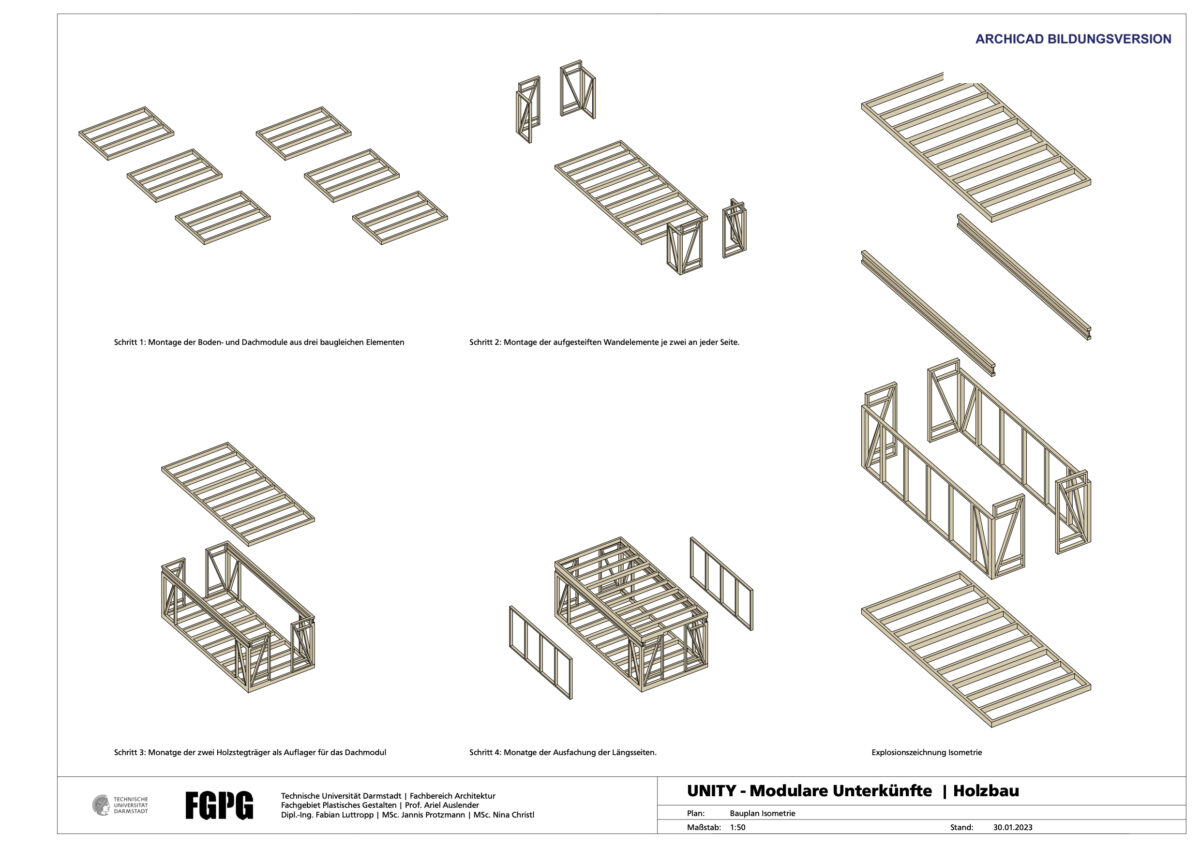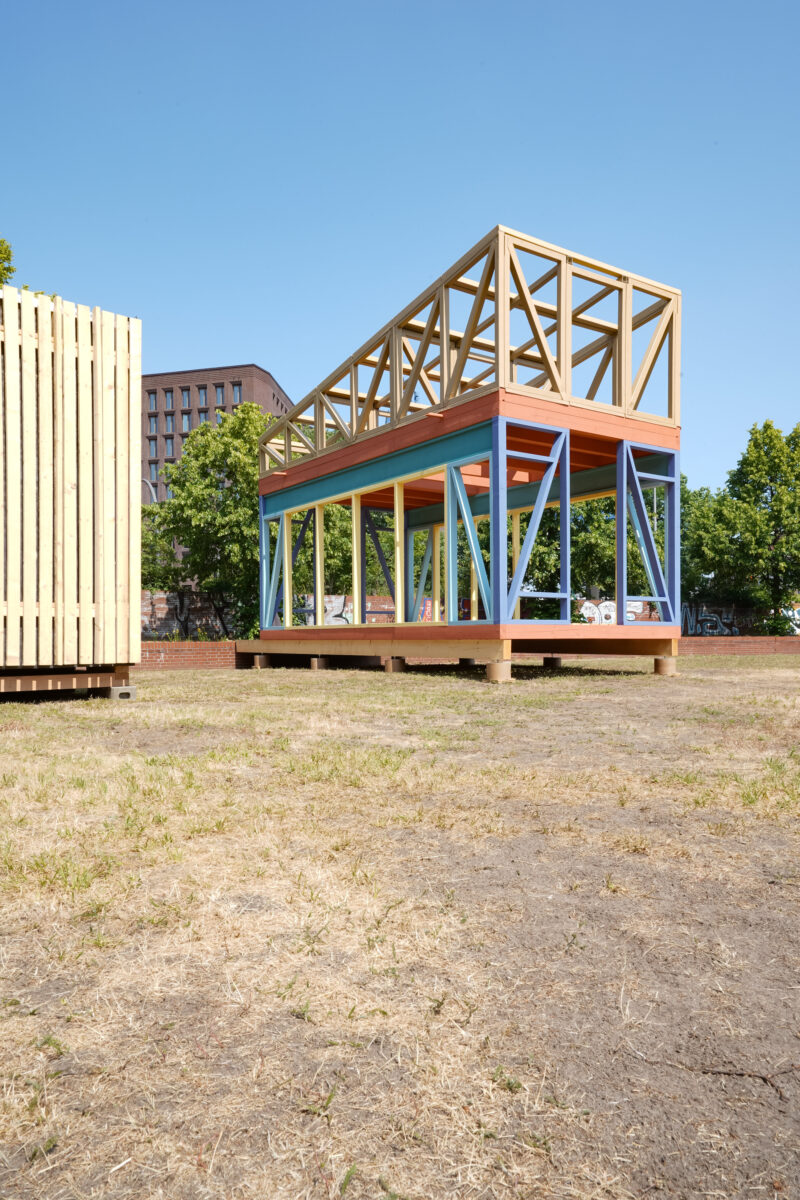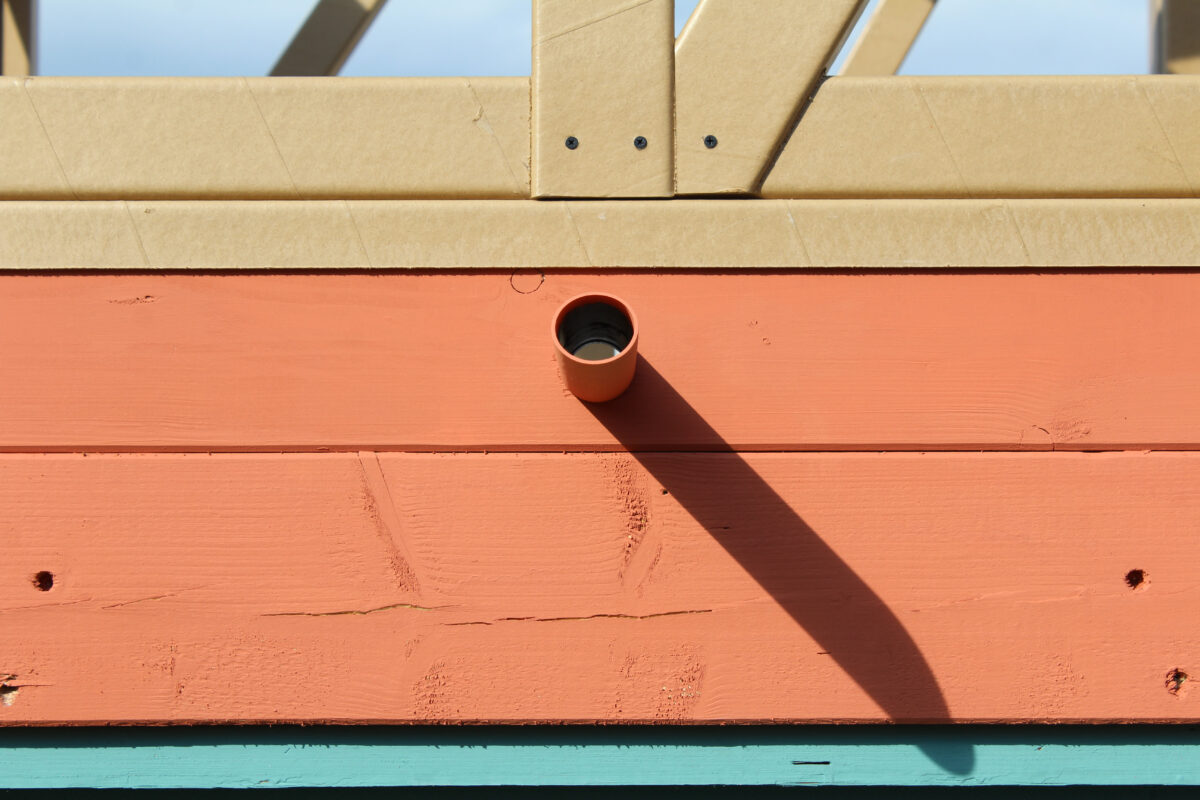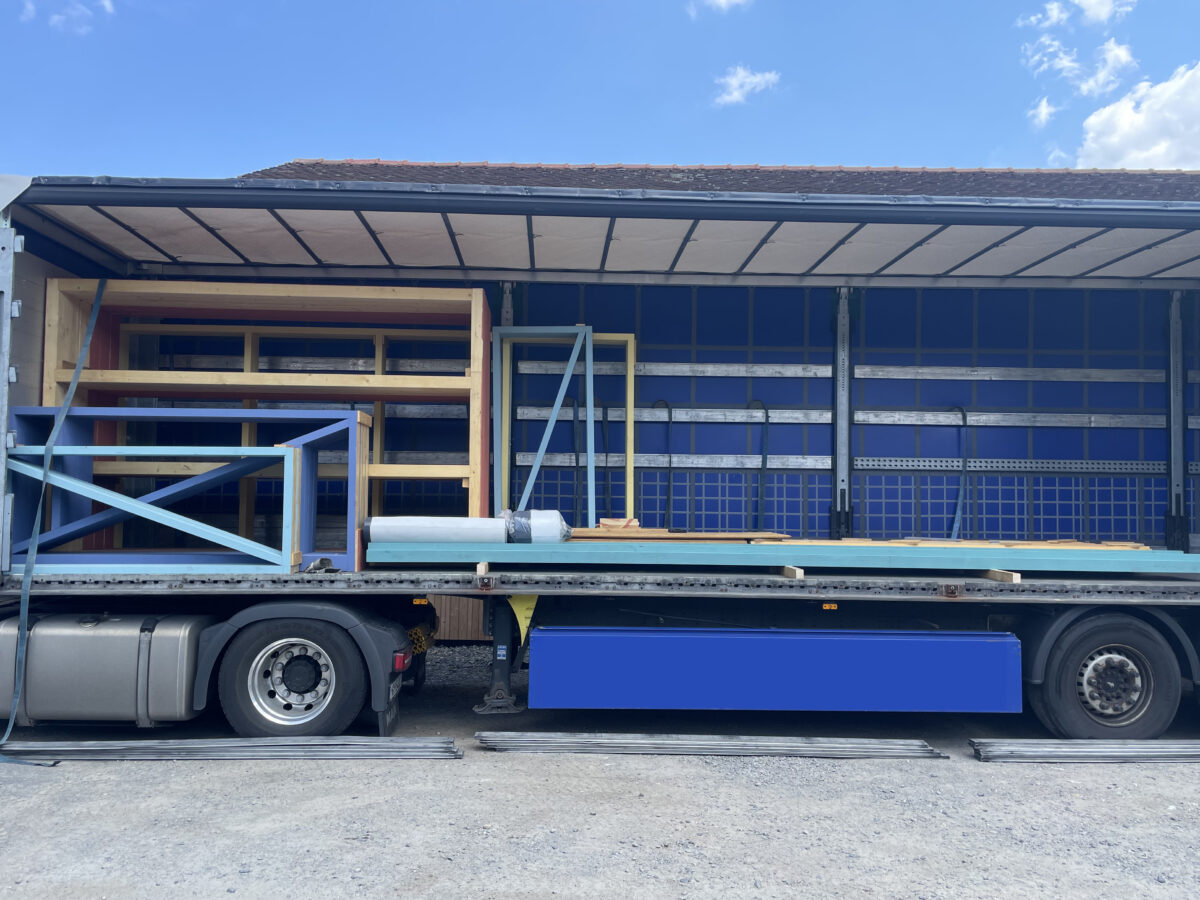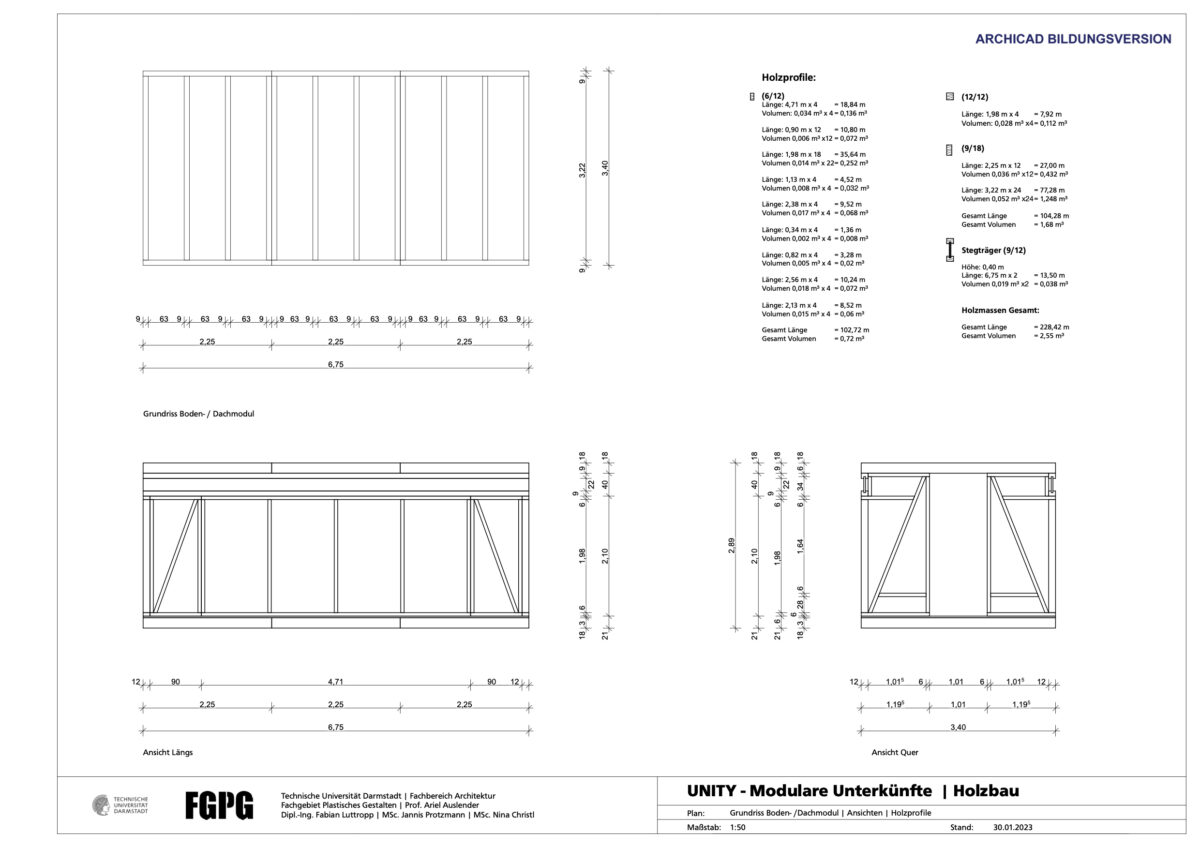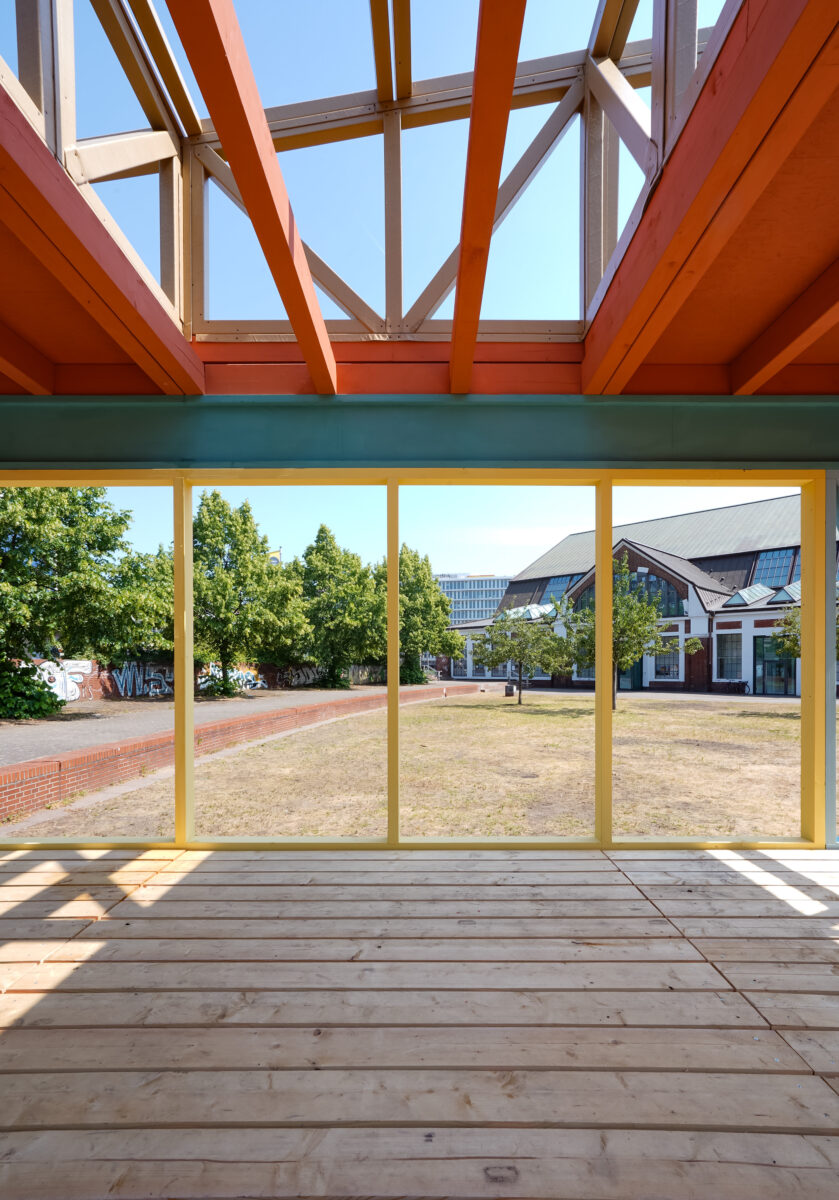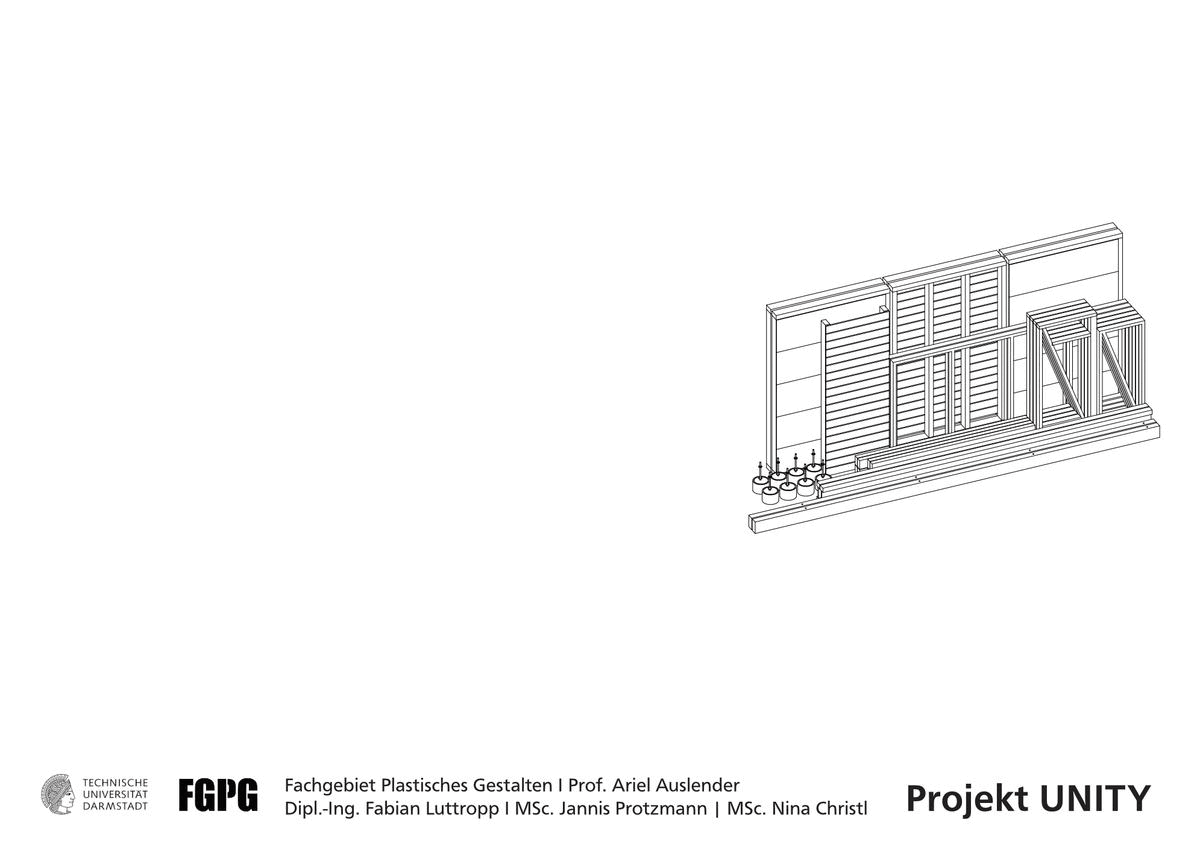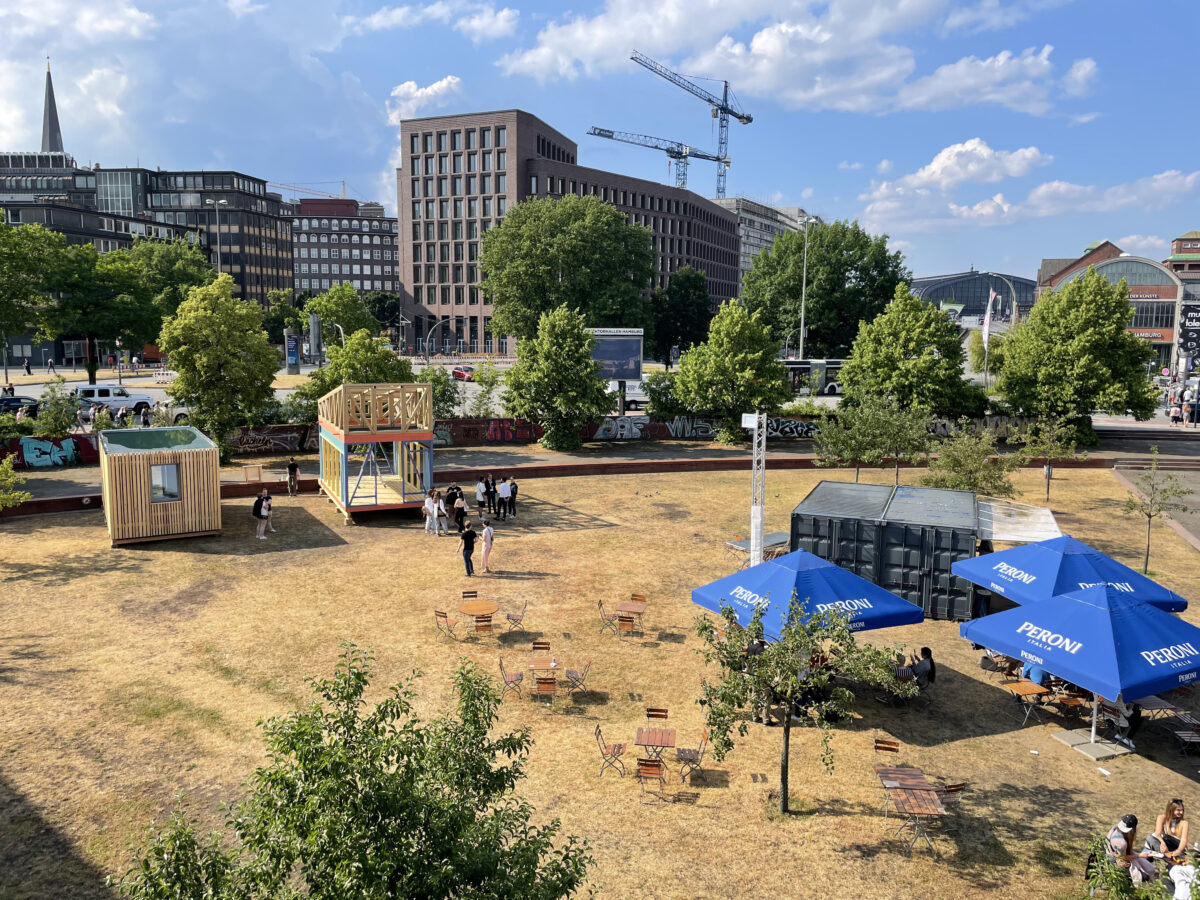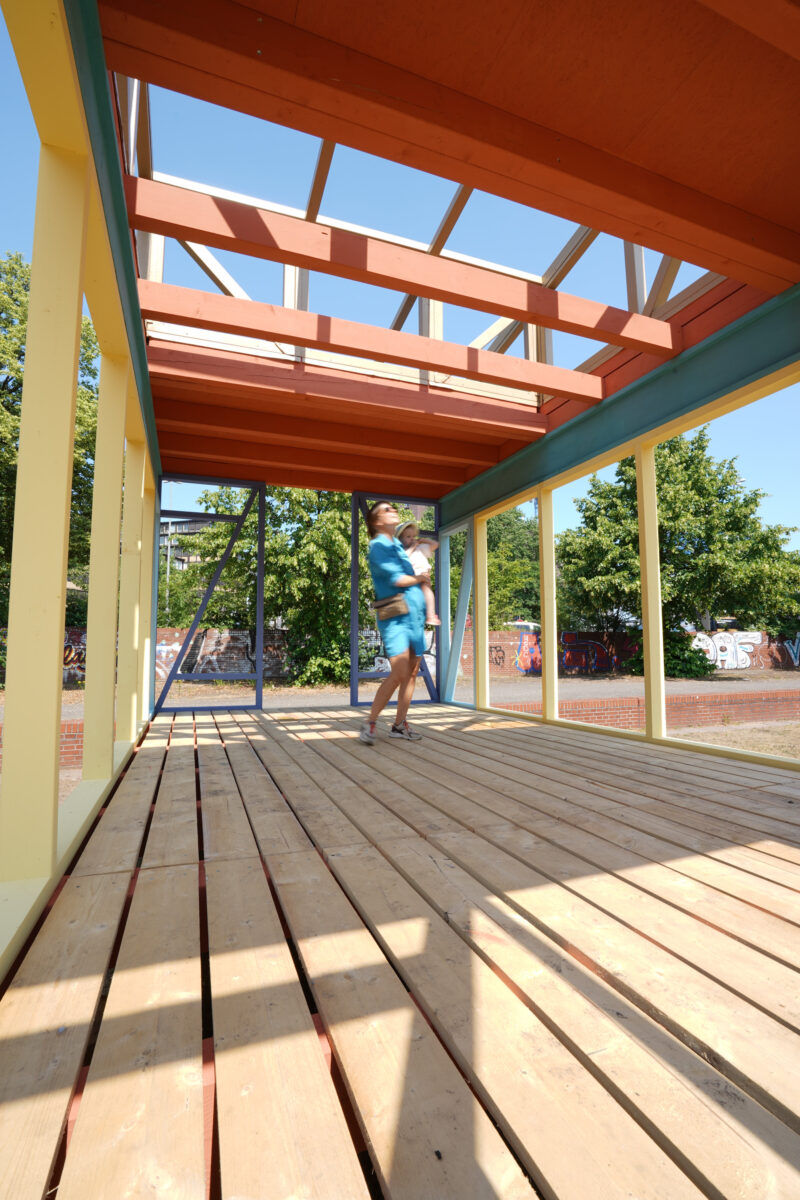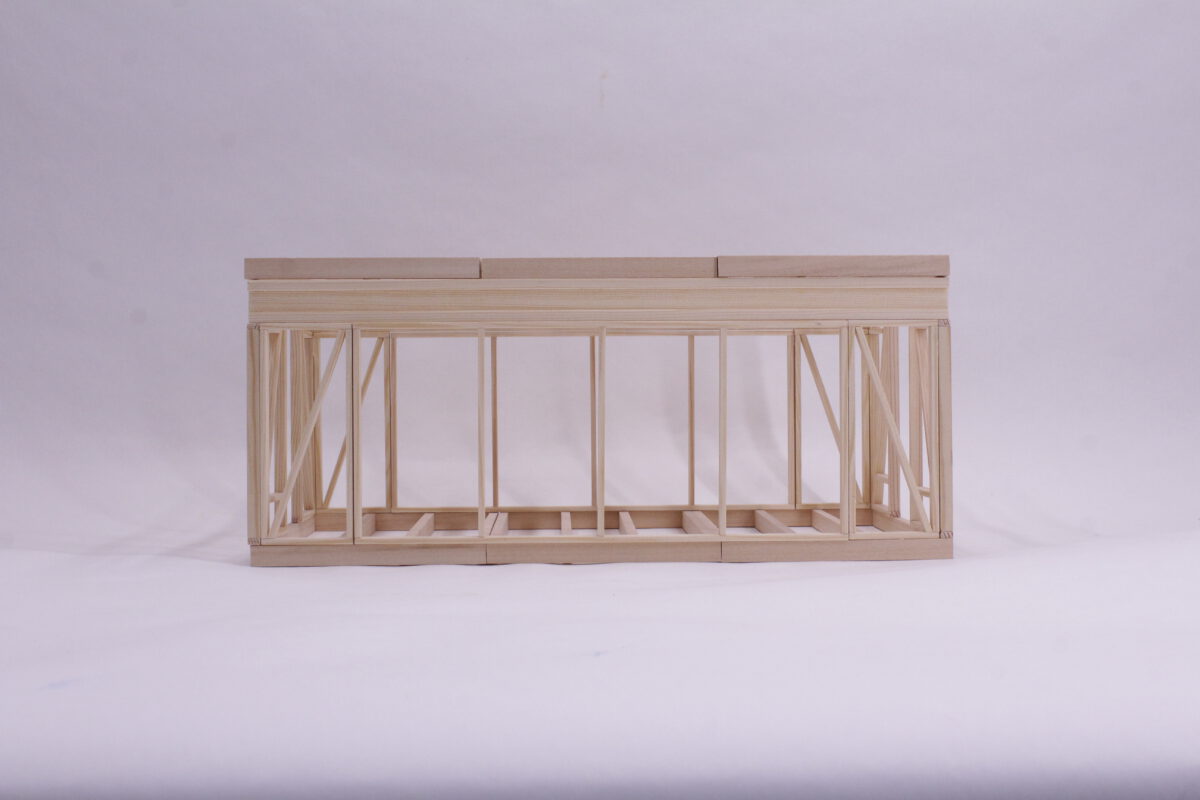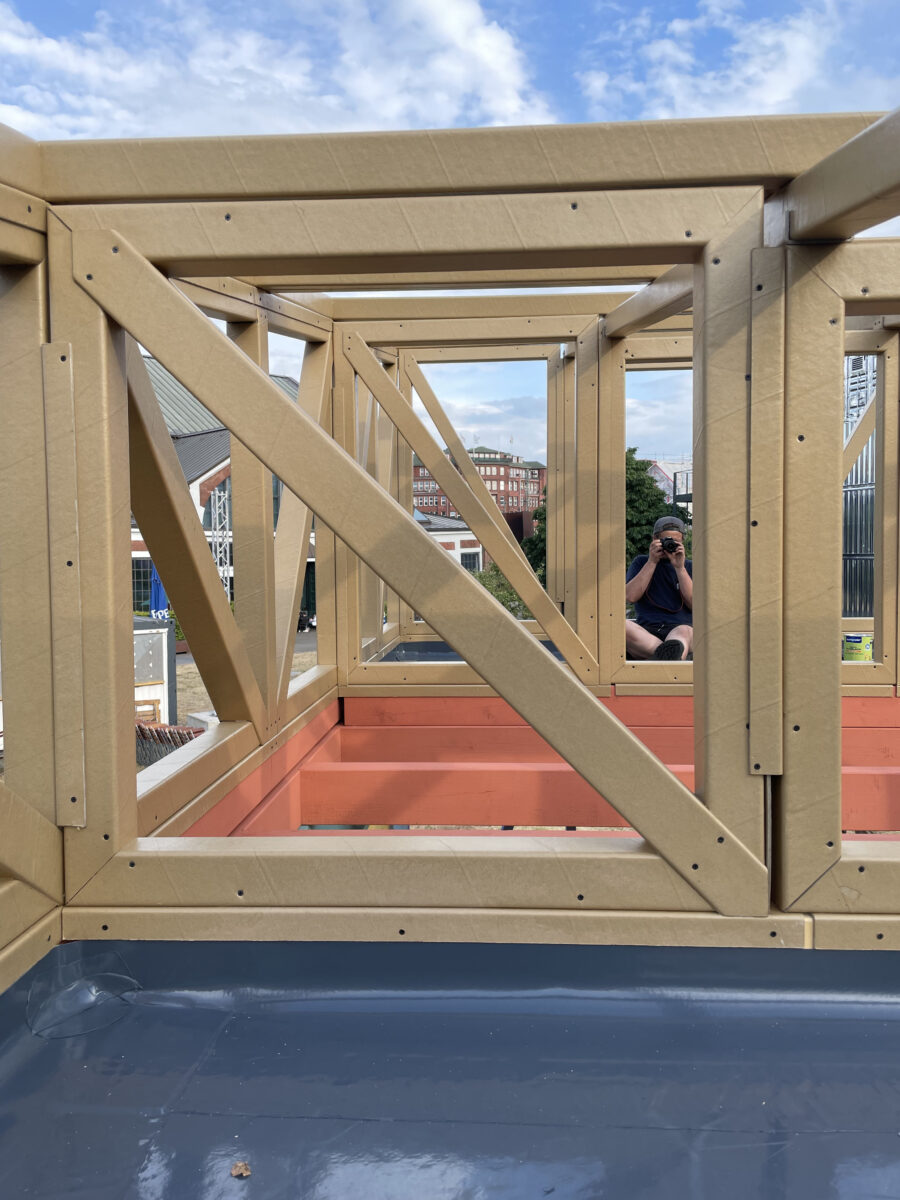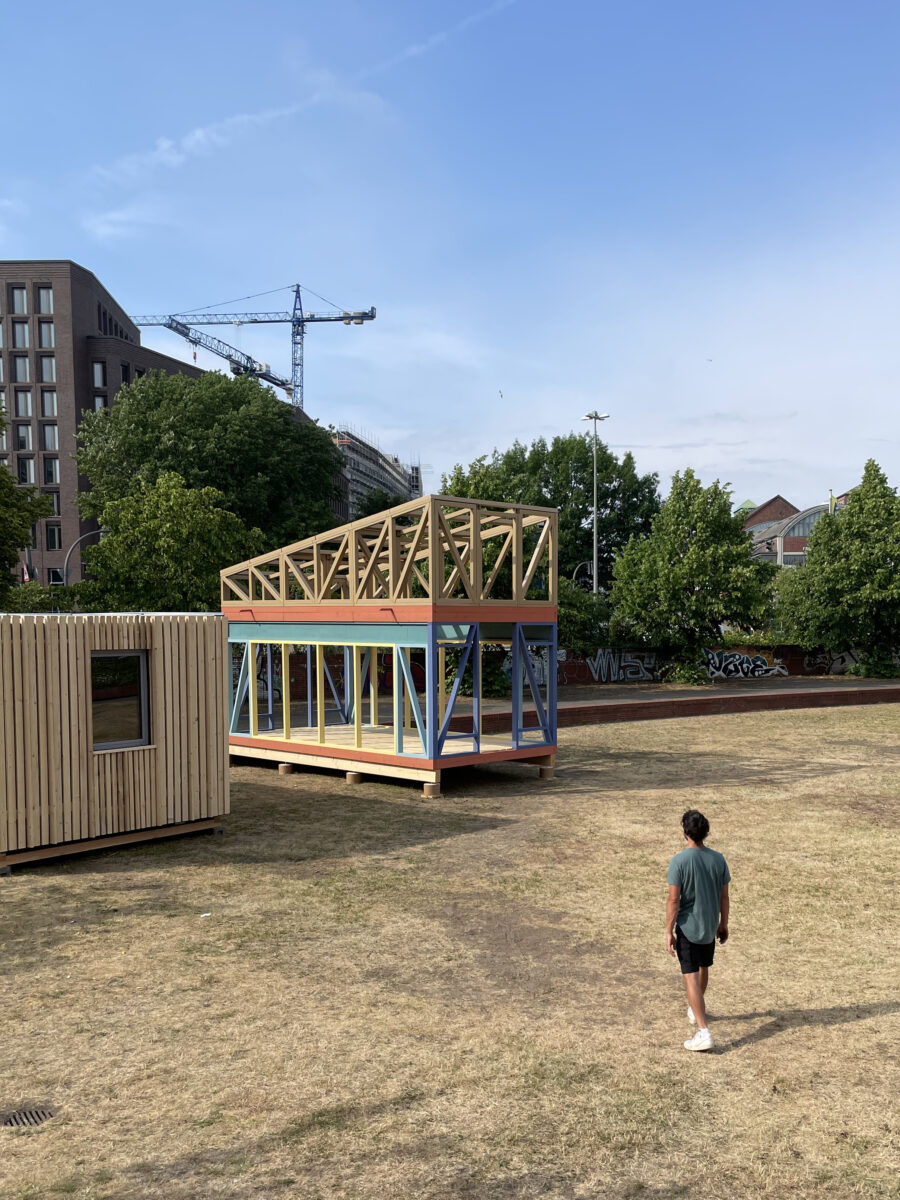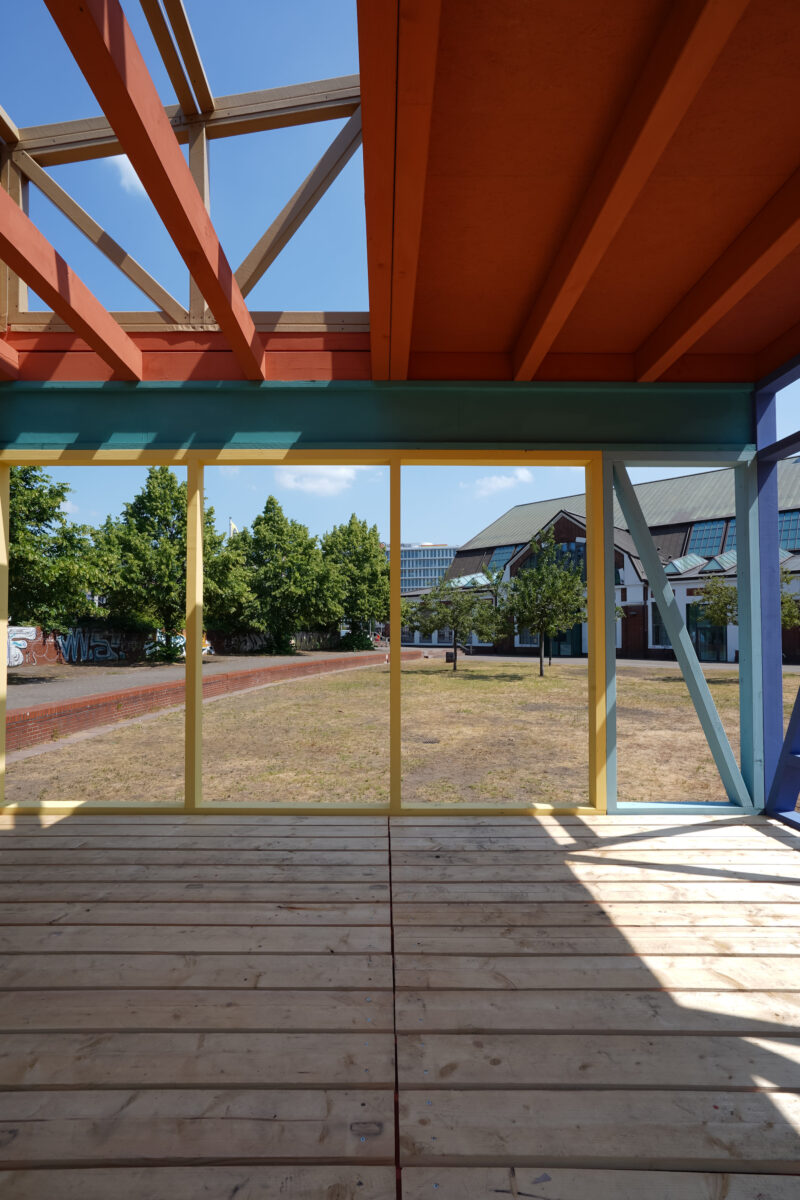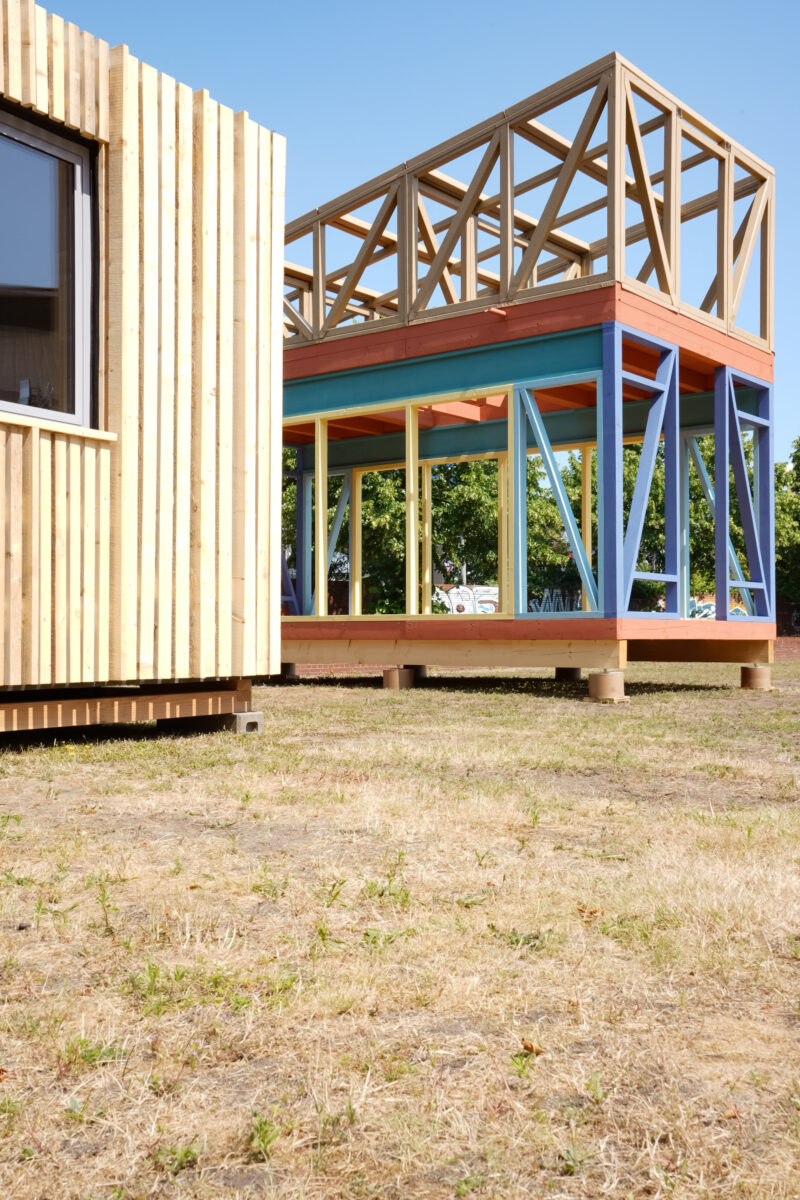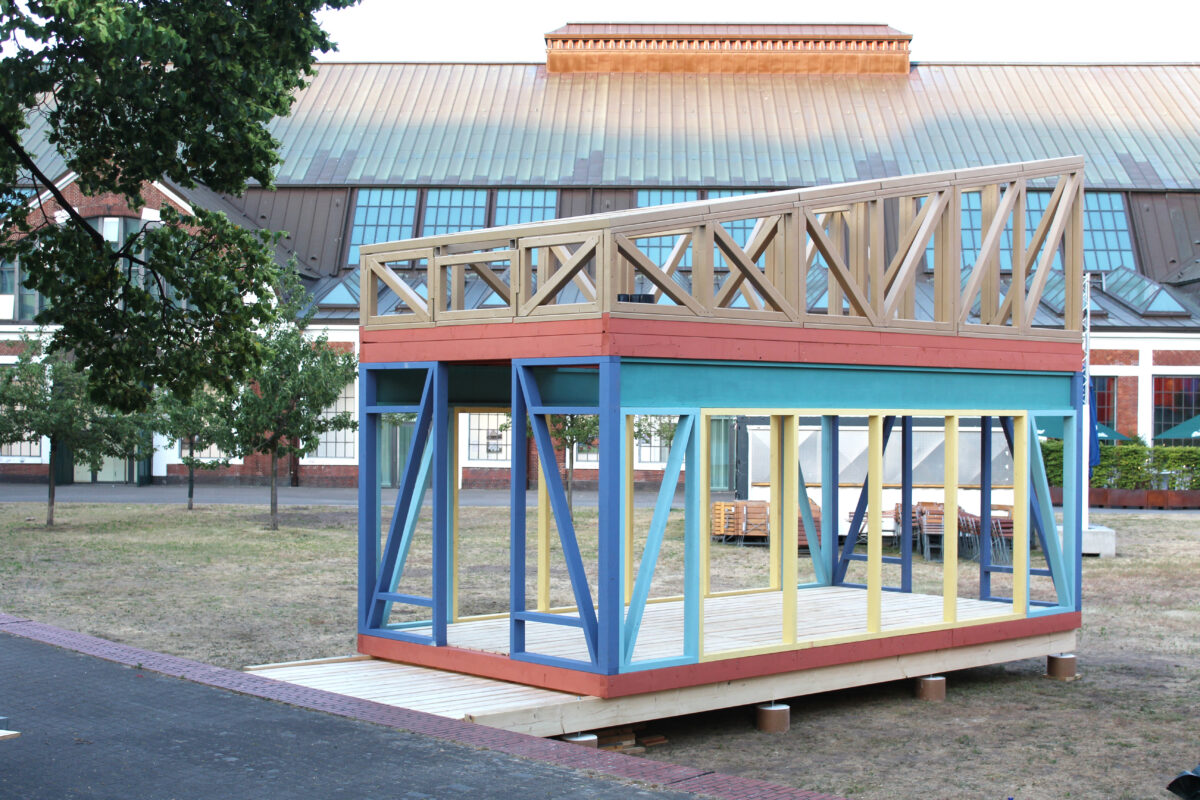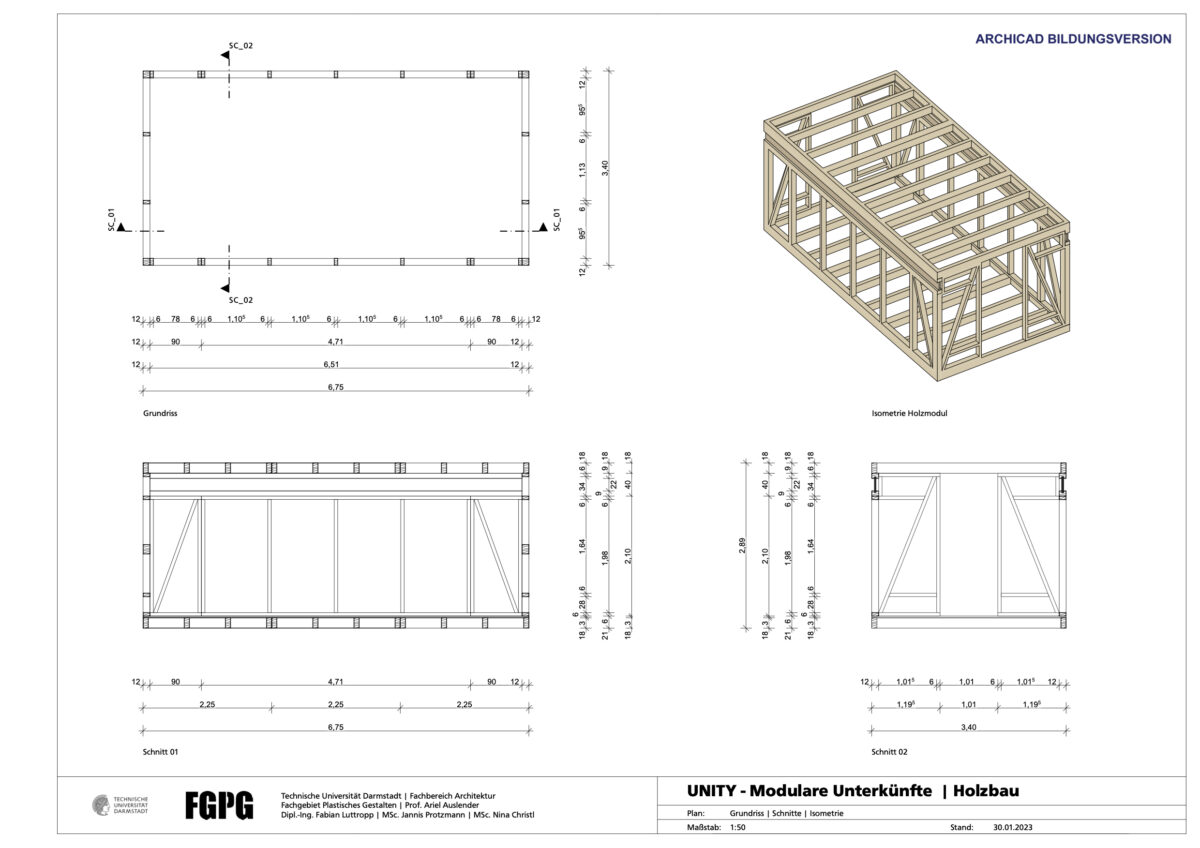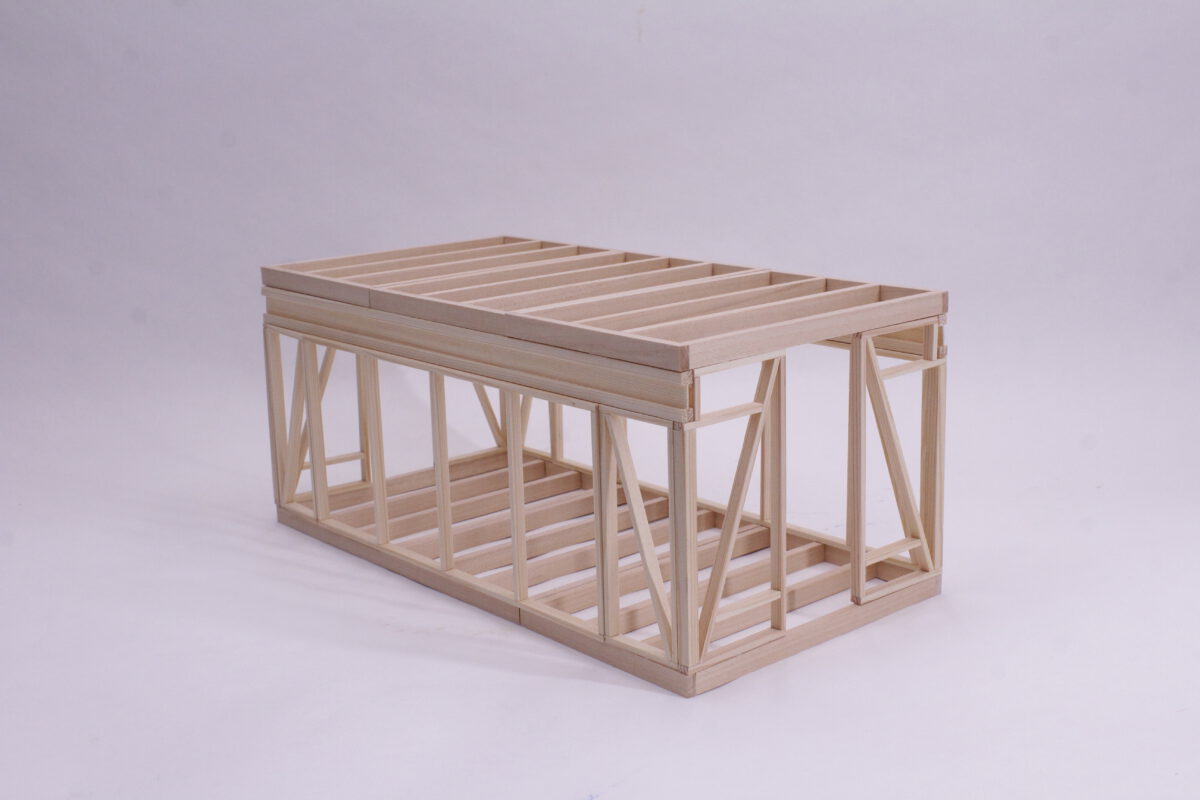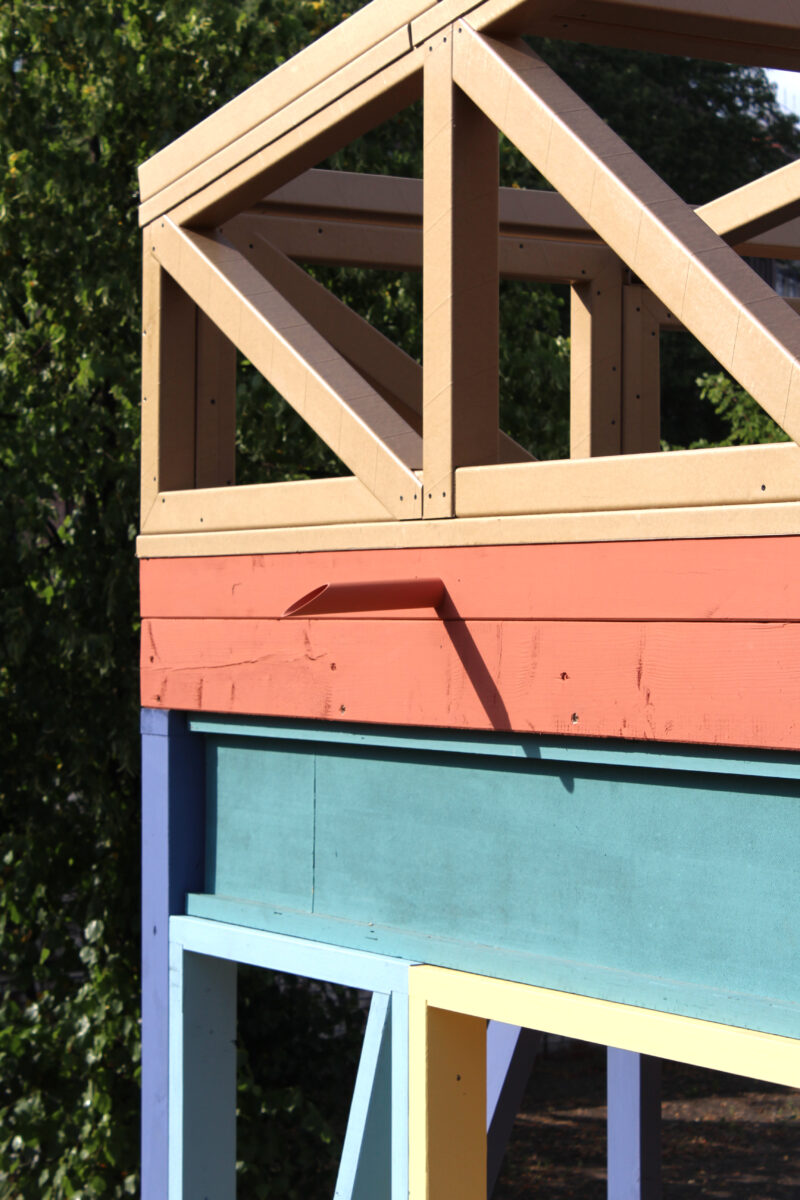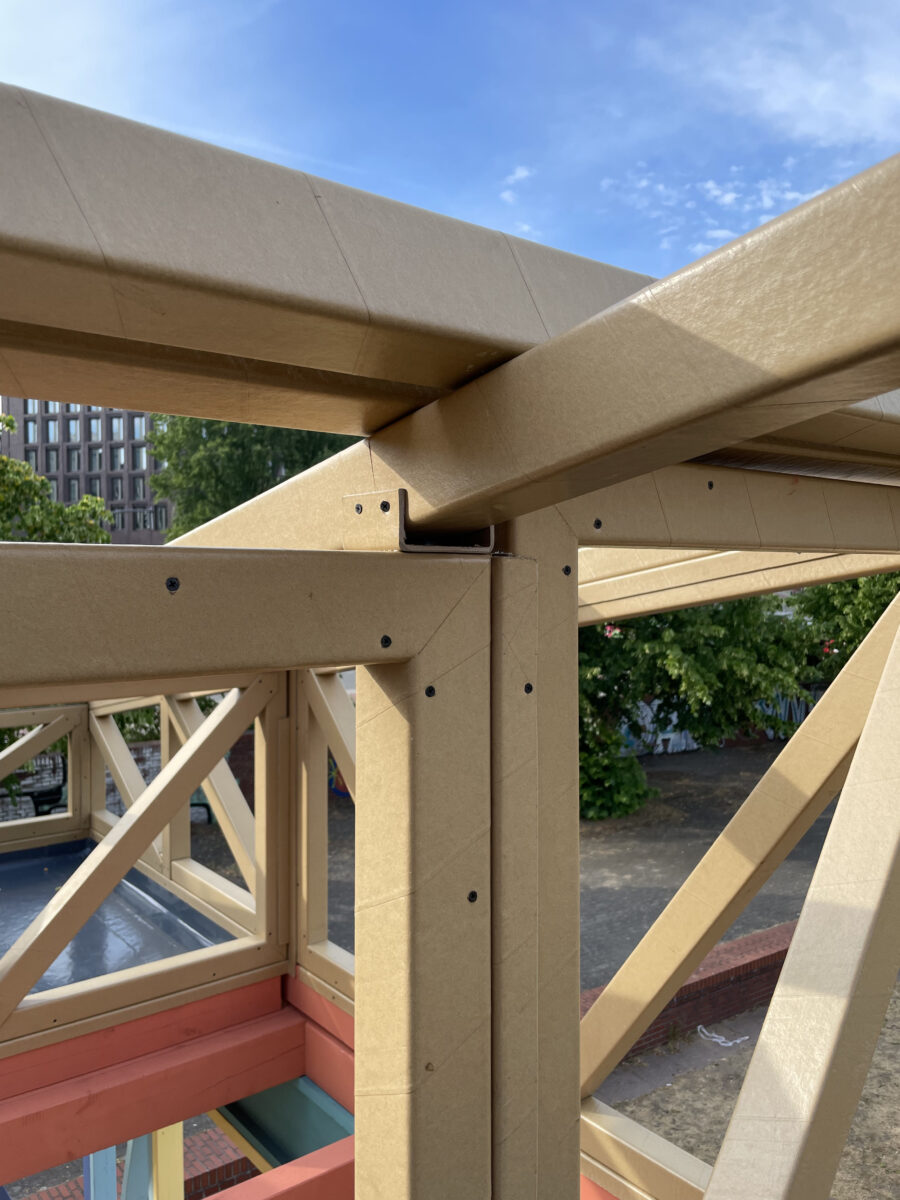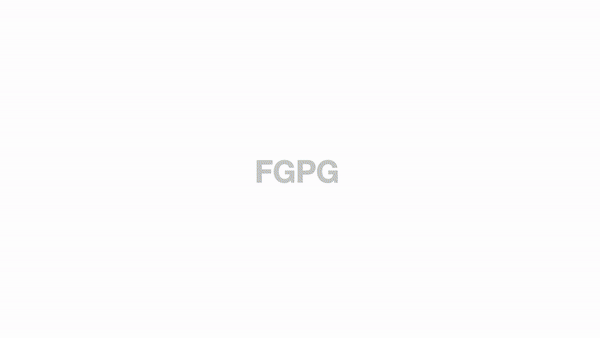
exhibition
UNITY Modular Shelters
The „UNITY“ project aims to rebuild housing in Ukraine and is thus part of a series of international commitments to provide assistance and aid to the people in Ukraine. The idea is to enable reconstruction through prefabricated modular buildings made of wood in order to quickly create adequate living space. For this purpose, existing designs of the initiators were taken up and further developed and optimised by the universities.
At the beginning of 2022, the project initiators, the BDB – Bund Deutscher Baumeister (Association of German Master Builders) and the Ukrainian architectural firm Balbek Bureau, asked all universities in Germany to participate in the project. In addition to the University of Lübeck, the University of Kassel, the TU Darmstadt applied more specifically for the Department of Sculptural Design.
The BDB (Bund deutscher Baumeister) is supervising and coordinating the project in Germany, providing contact persons and contacts to material. The general aim is to prepare for the reconstruction of Ukraine after the war. For this purpose, a concept is available from the architectural office Balbek from Kiev with support from a German office in terms of statics and feasibility. In addition, sponsors for materials were obtained from Germany.
The task of the German university teams was to build the building units as a prototype, to play them with imagined uses and to realise the concept 1:1. The concept for the new dwellings is based on an architecture conceived as a modular timber construction. Already after the war of 2014, the first „temporary units“ were built, which still exist today as container settlements. Based on the experiences, the aim is to learn from the past and to create medium-term situations that are better accepted, more comfortable and more humane.
The entire project is defined as an aid project and is financed by donations. The results of the participating universities were presented to the public during the Architecture Summer in Hamburg from 17 June to 13 August 2023.
The FGPG was asked to contribute its know-how and competences in building (1:1, exhibitions and architectural projects in low-budget or SimpleBuilding), to optimise things and to contribute to the reconstruction in Ukraine. The UNITY project forms another contribution to the topic of 1:1 realisation and meets the approach of experimental building at its core. In addition to the obligatory project goals of working on the module in the form of a wooden building, the FGPG has tried to develop the topic in the context of building with paper and cardboard in parallel in the project and to present buildingwithpaper as a profiling topic to the outside world here as well. Structurally, this was realised in the form of a crowning attachment on the wooden module, which is constructed from square sleeves. The wooden construction base and the attachment made of paper materials form a unit, an ensemble, with the character of an archetype. Thus, the more artificial idea of representation was in the foreground, rather than the attempt to represent a house in a structurally and constructively correct way.
The wooden module was optimised by the field in terms of transport and neutrality of use. The elements in the form of wooden frames enable space-saving transport of several modules per truck and the dimensions of the individual elements allow them to be carried by two to three people. In addition, the amount of wood used was reduced to a minimum, but without limiting the structural properties.
In addition, the elementisation and use of a wooden web girder makes it possible to remove a longitudinal wall and thus to interconnect individual modules for greater neutrality of use. The feminine design makes the individual elements readable and the exposed truss provides an open space for events on site.
The exhibition, and thus the paper construction, was exhibited on site for four weeks and presented to visitors as part of the summer of architecture. The wooden module was dismantled after the Architecture Summer and transported to Wurzel in the Ukraine around Kiev. Here, the Balbek architectural office is building the first settlement made of wooden modules as part of the reukrainesystem project.
The FGPG and the team buildingwithpaper live from the fact that it is supported from many sides and to be able to work on things the way it is currently done. We would like to thank our sponsors:
- Stillger Stiftung
- TU Darmstadt
- Fachbereich Architektur
- Keim Farben
- Brückner Dietz
- Paul & Co
- TFT
- Zimmerei Radl
- Mengler Stiftung
Team UNITY of the Department of Sculptural Design:
- Prof. Ariel Auslender
- Nina Christl
- Veruschka Janouschkovetz
- Alexandra Kapelle
- Fabian Luttropp
- Khaled Nassar
- Jannis Protzmann
- Karim Ramadan
- David Waldeck
Partners / Initiators:
- Balbek office: »www.balbek.com«
- BDB – Bund deutscher Baumeister: »www.baumeister-online.de«
